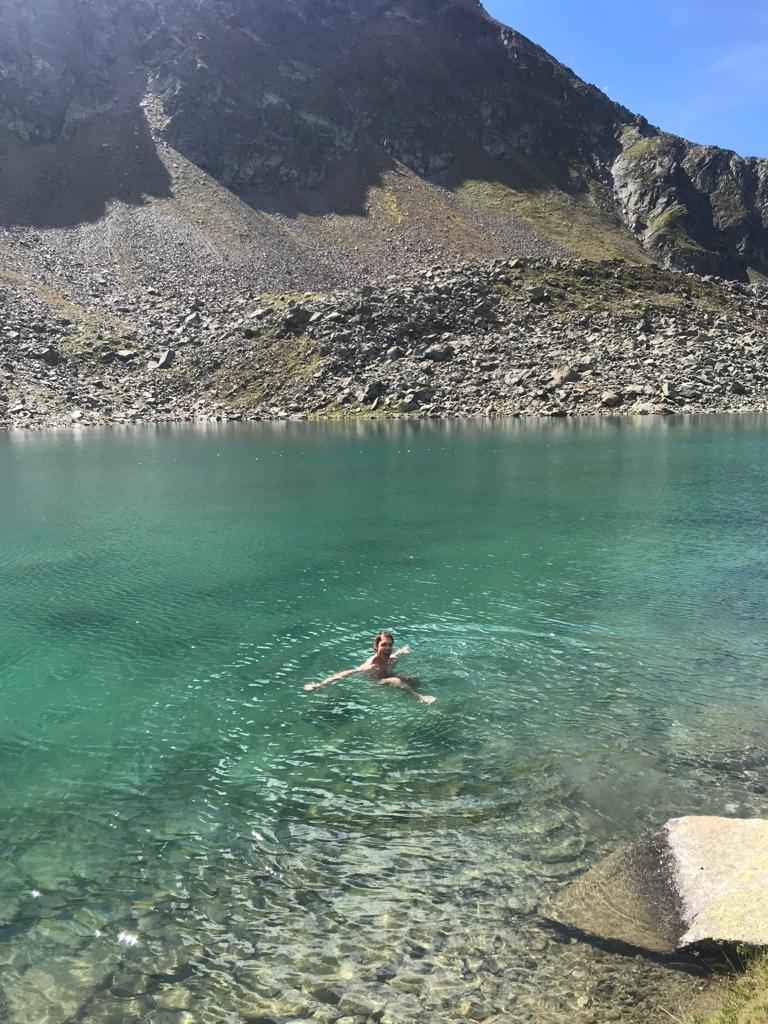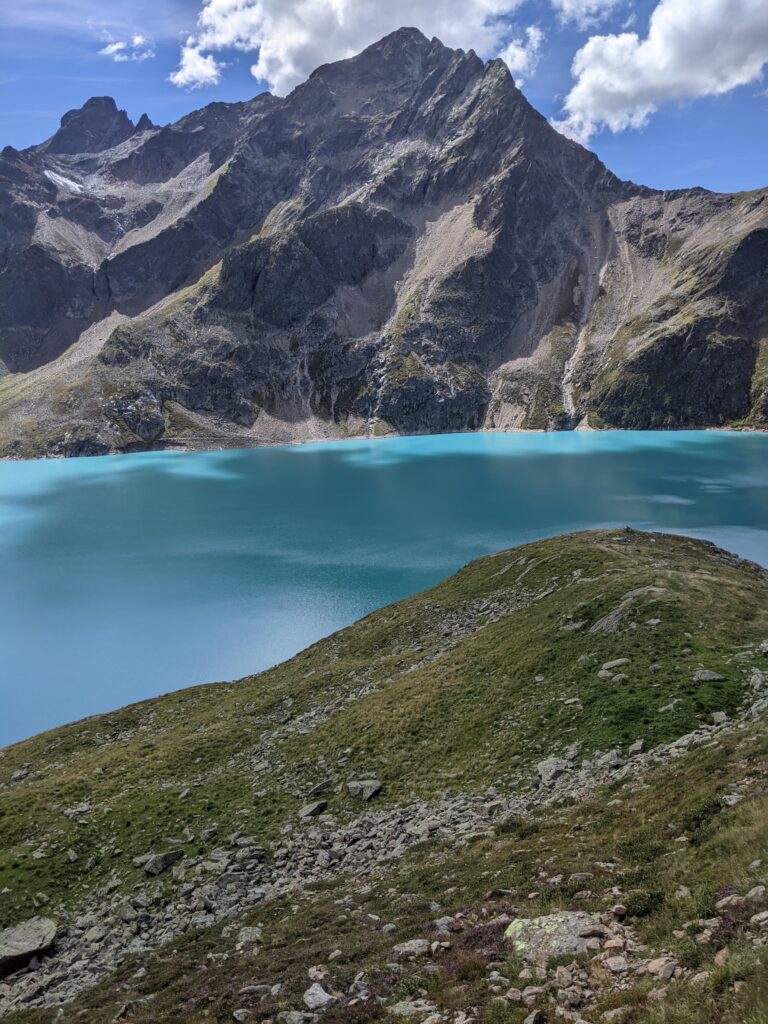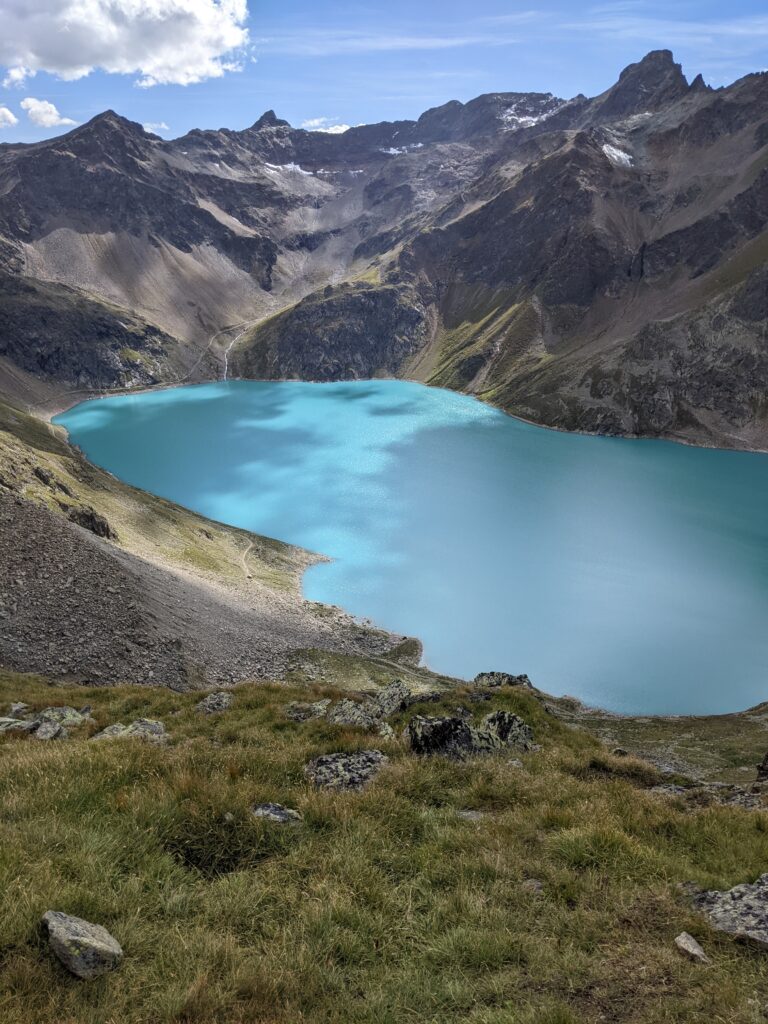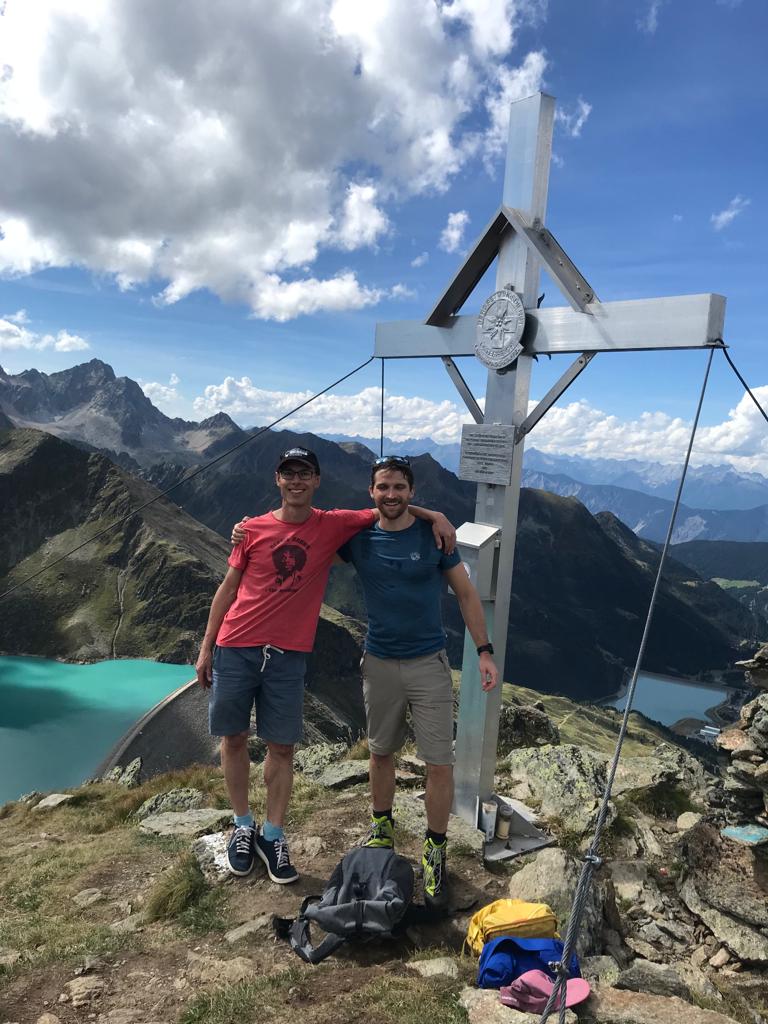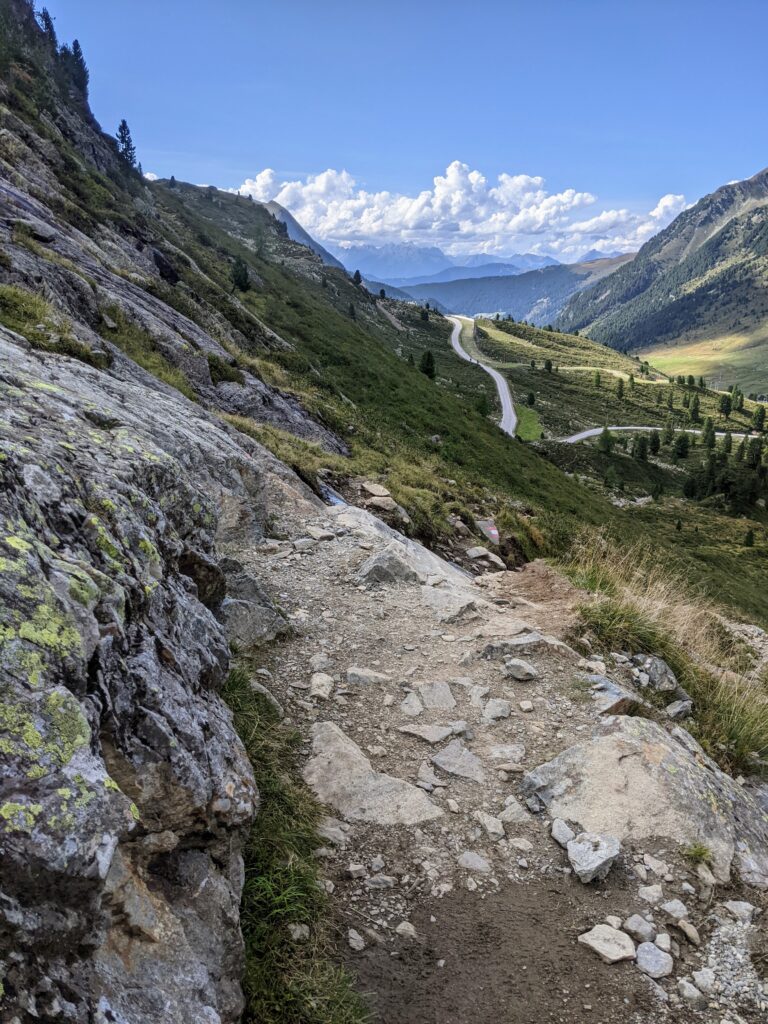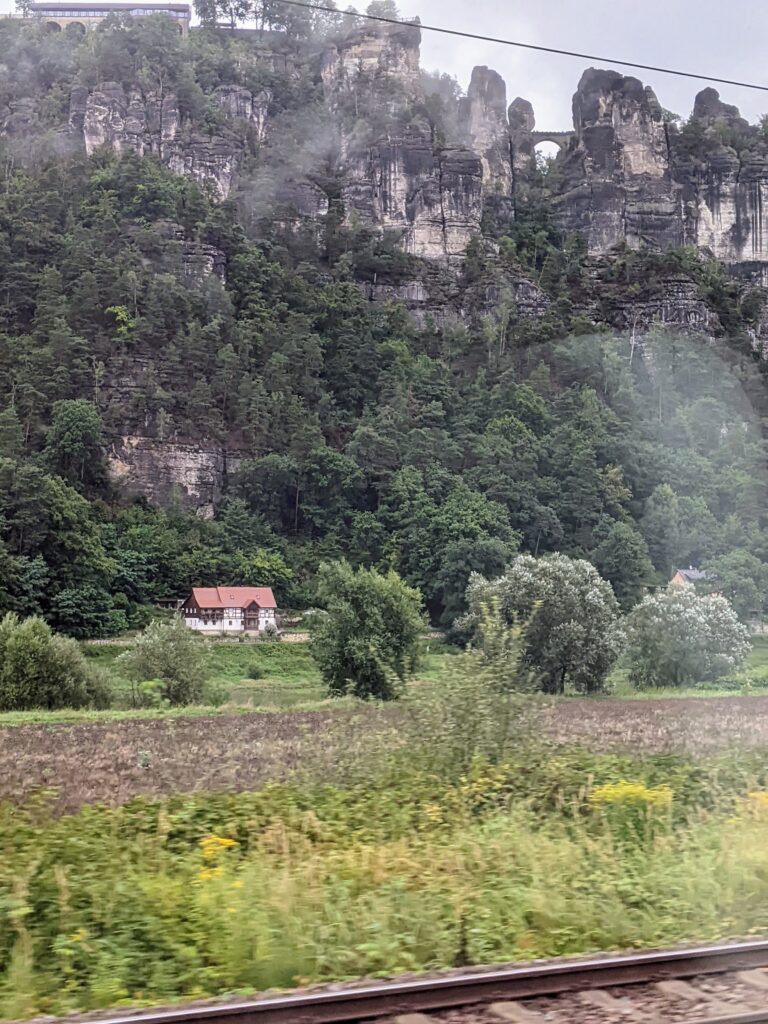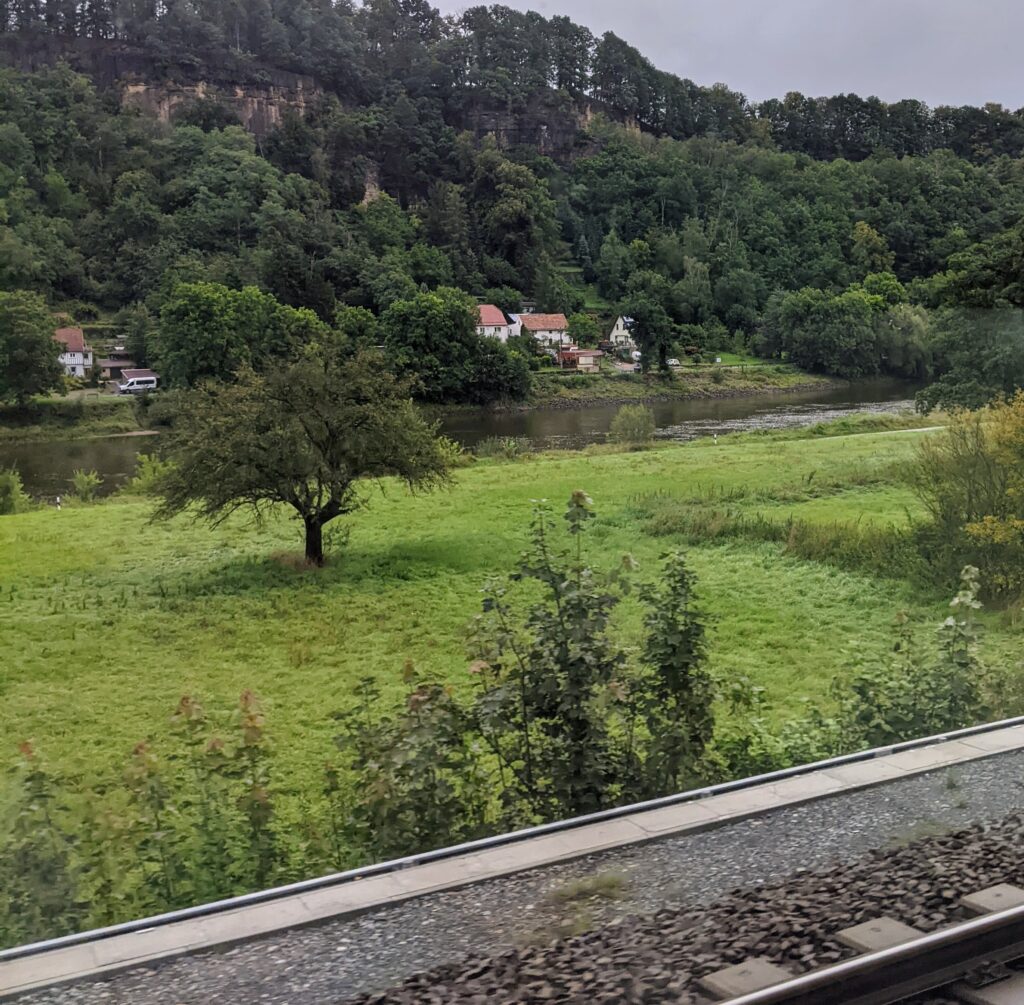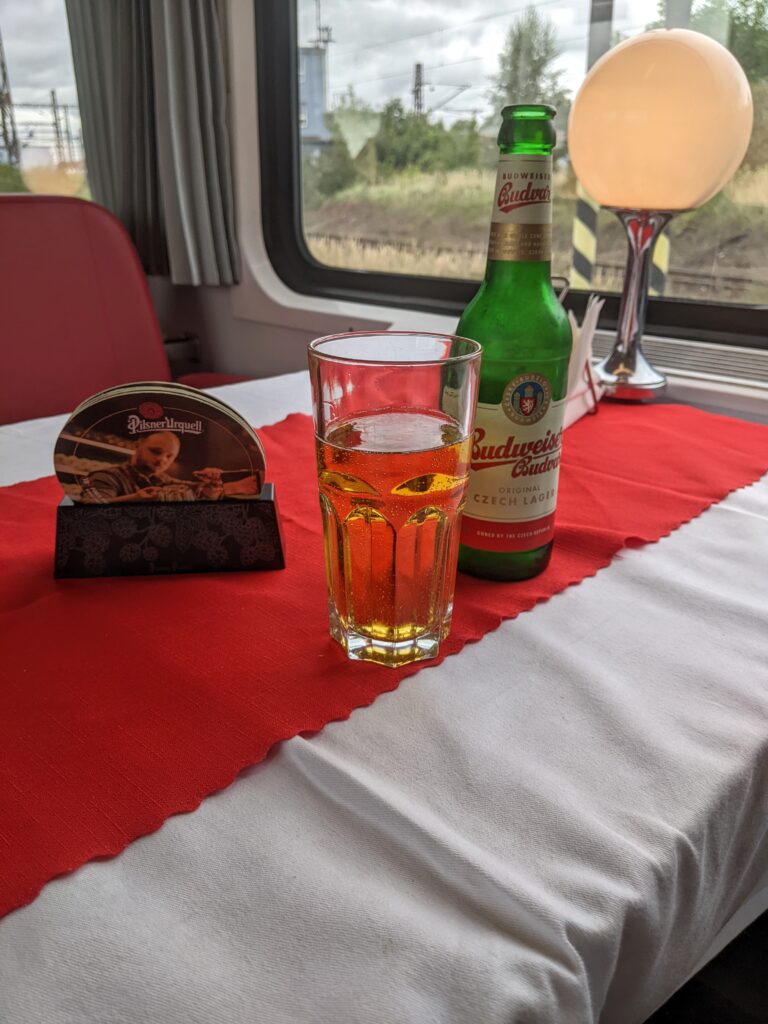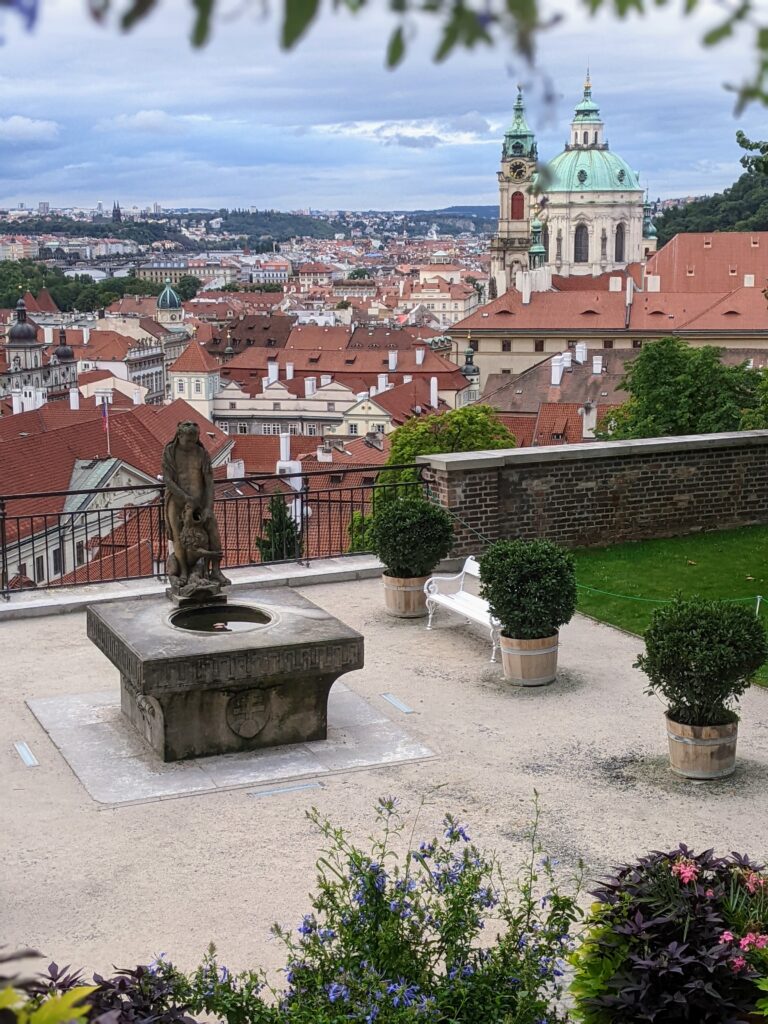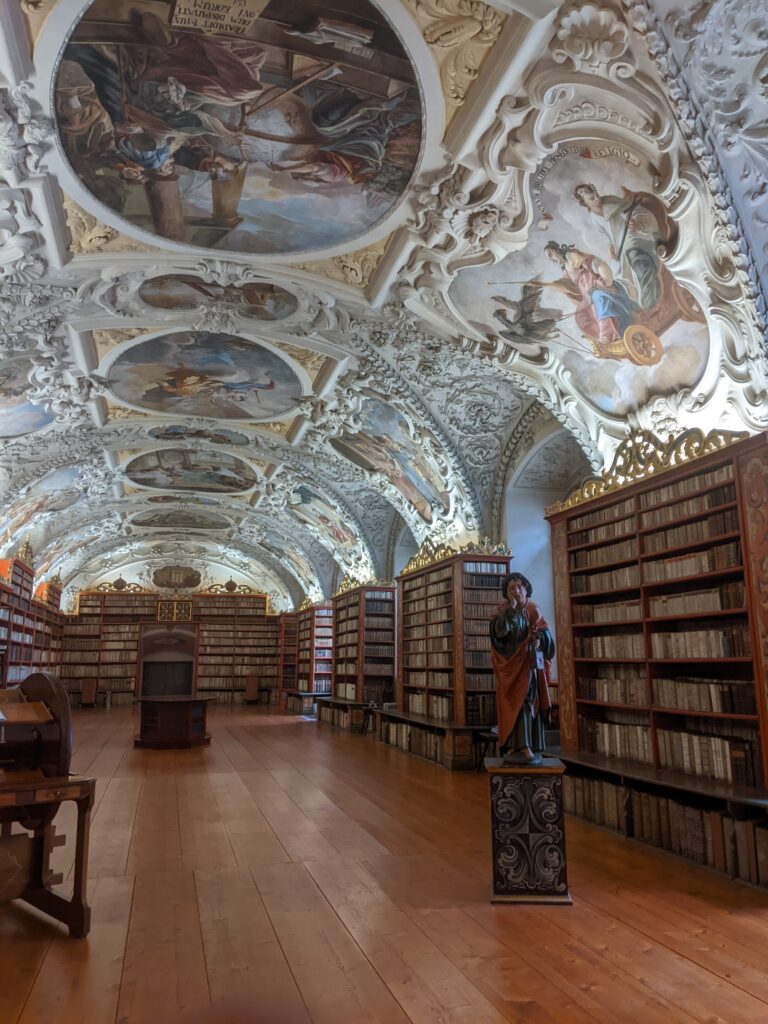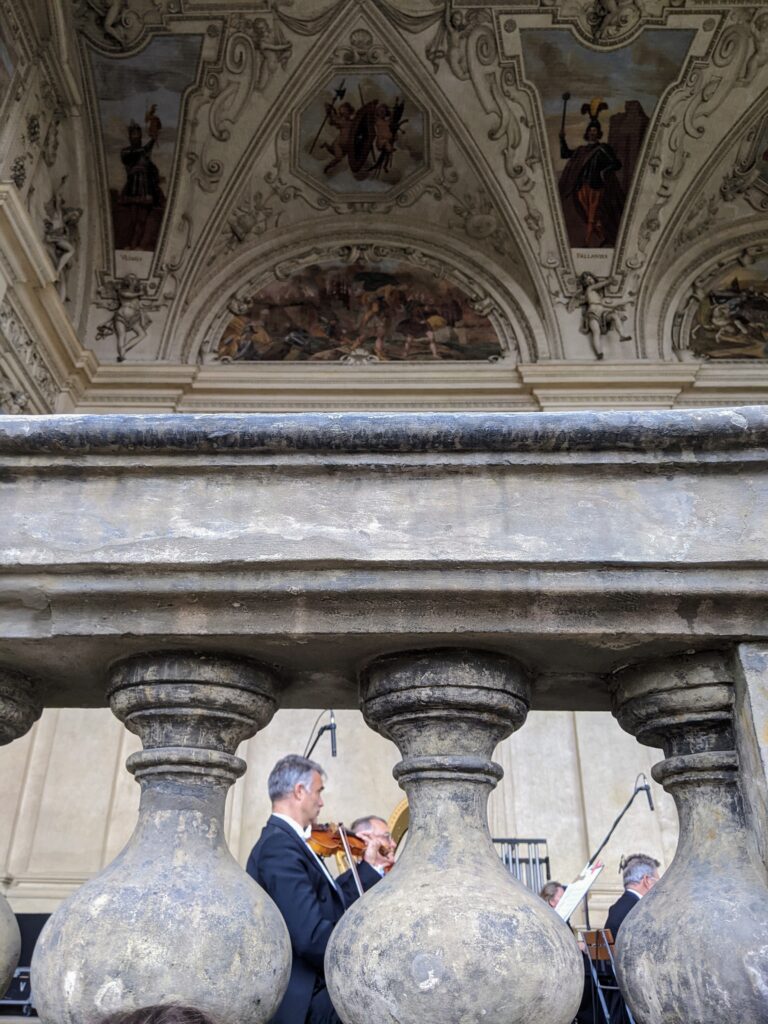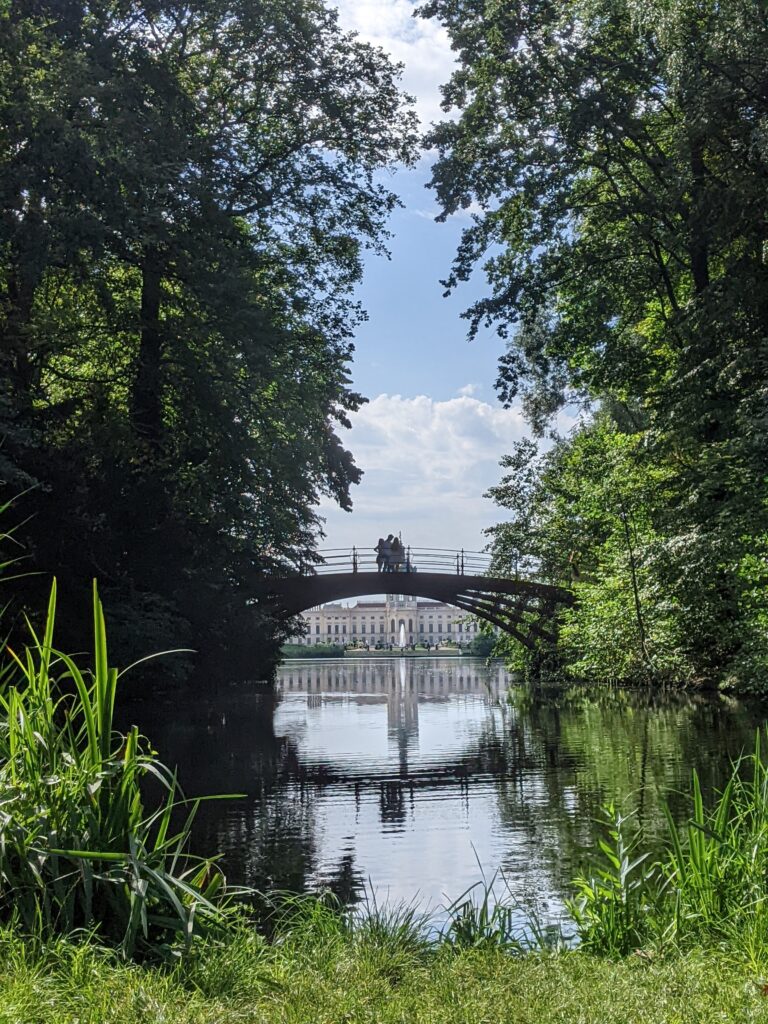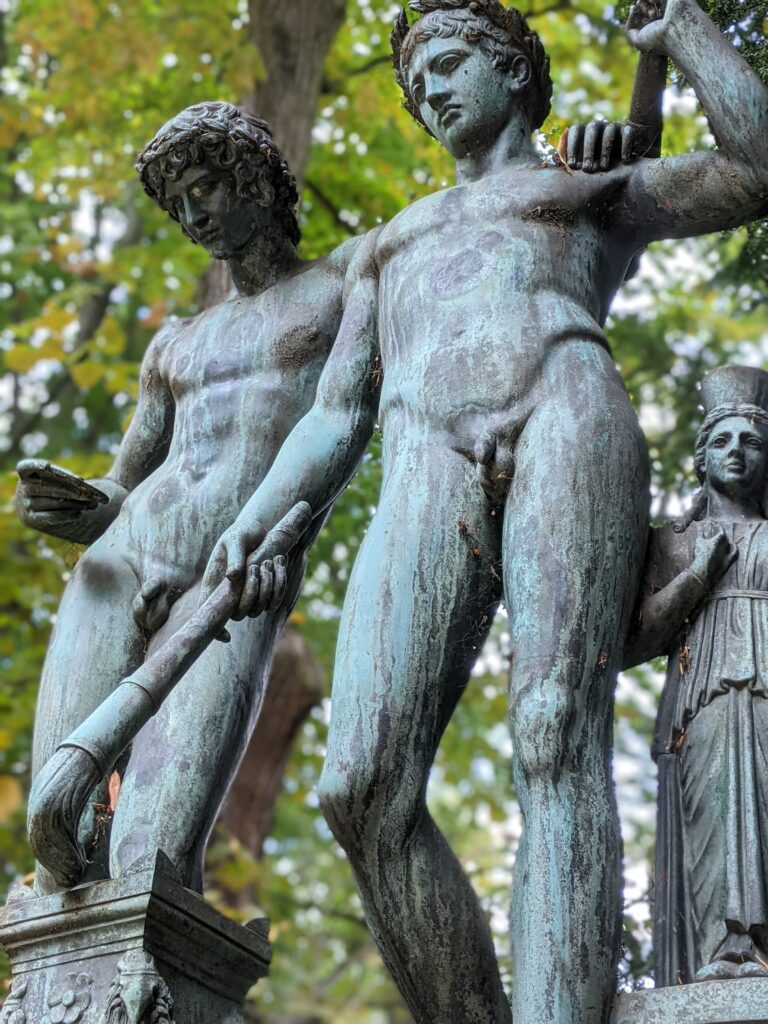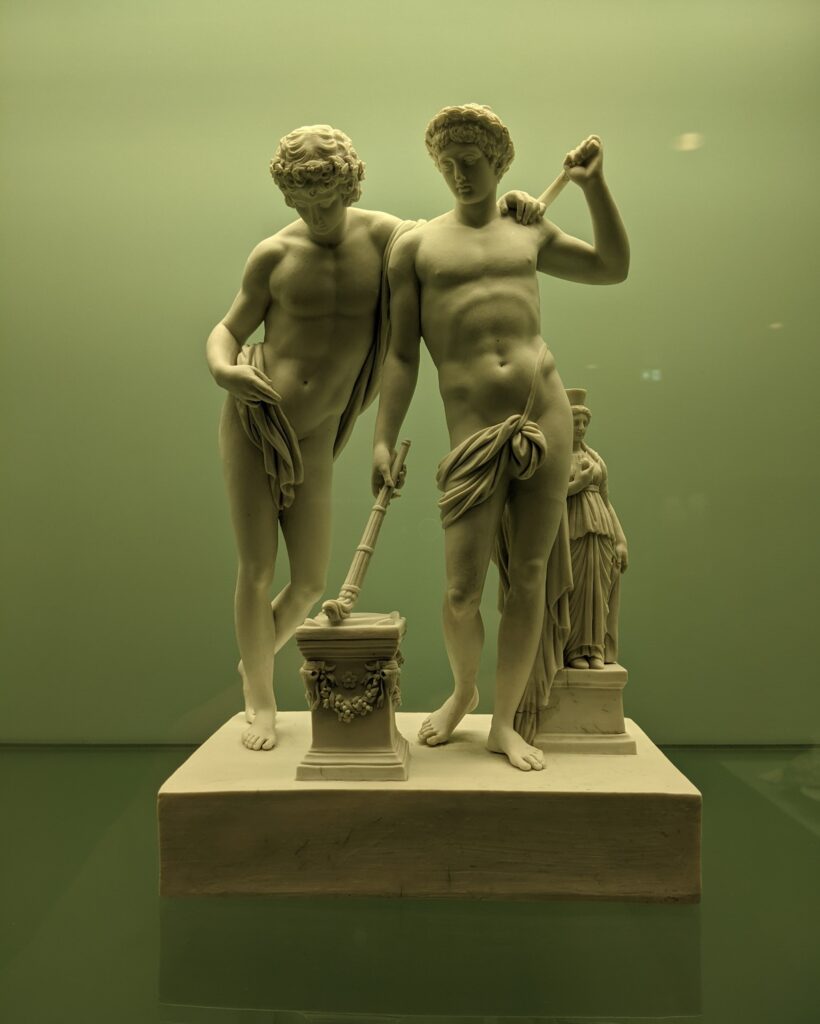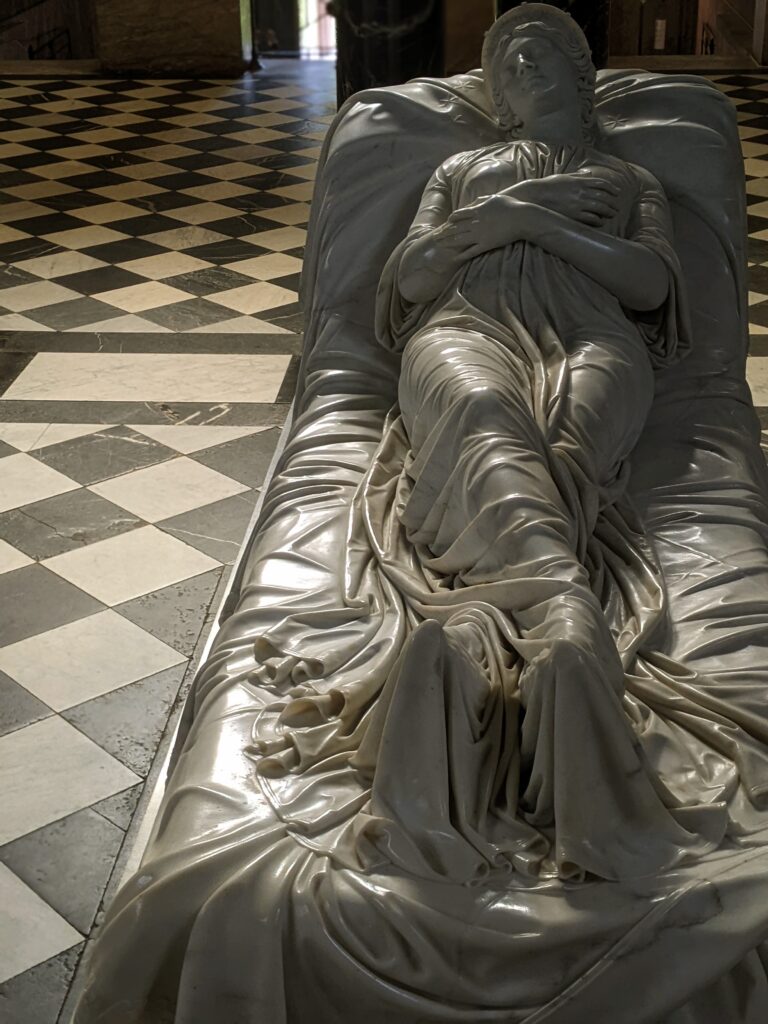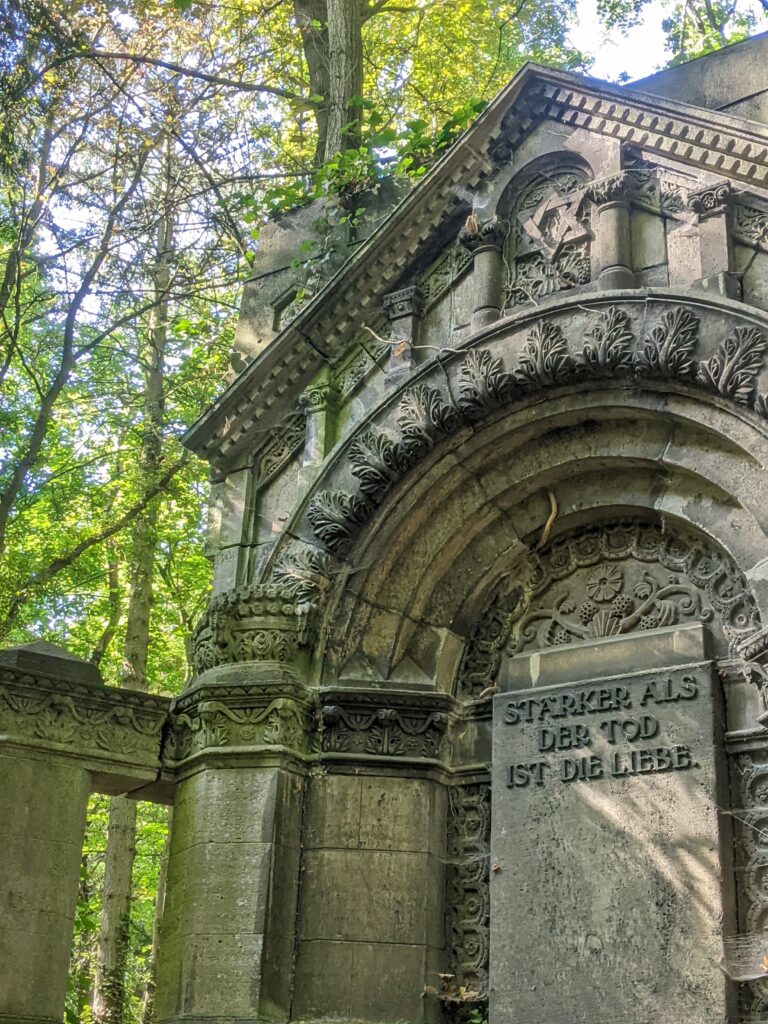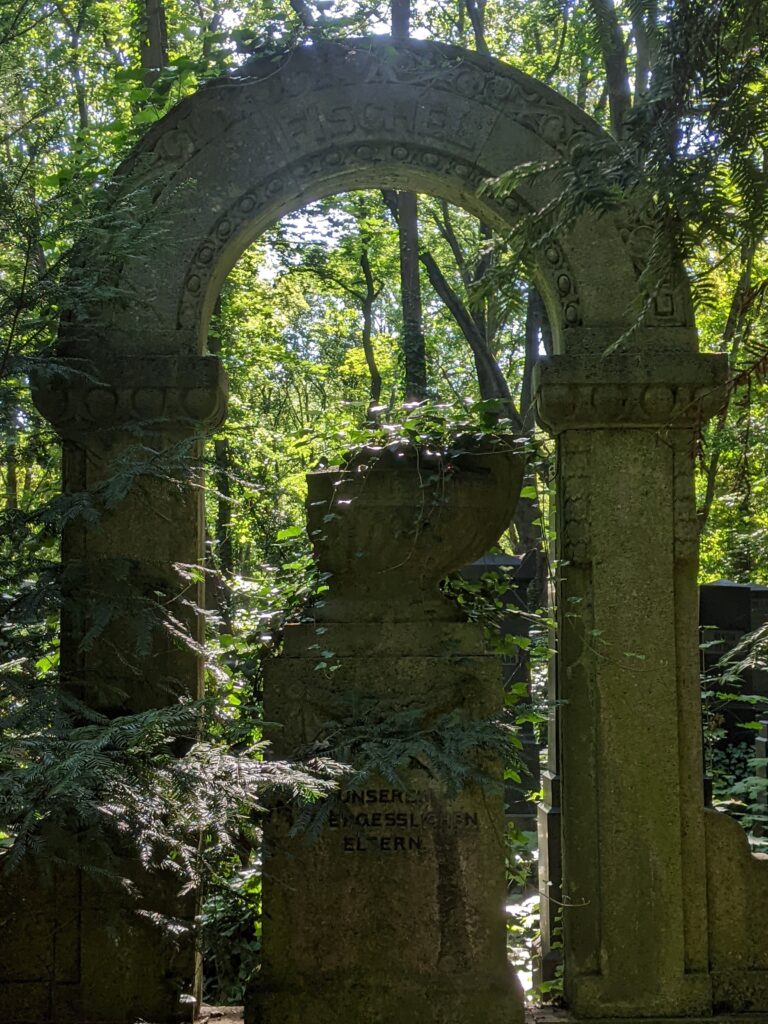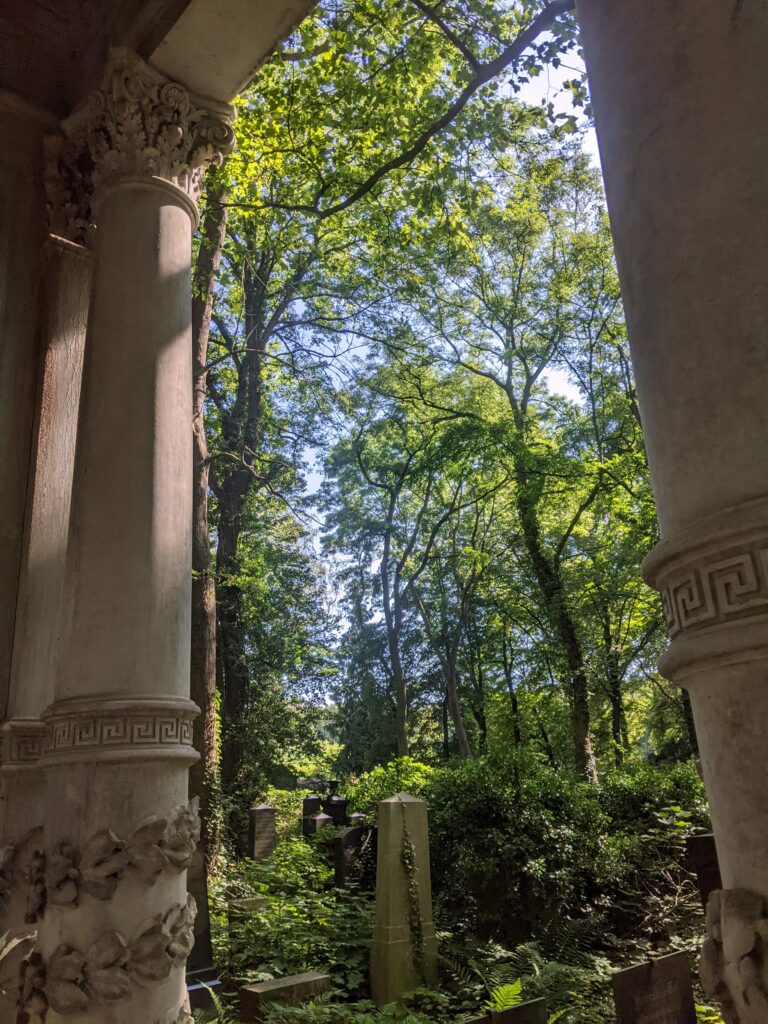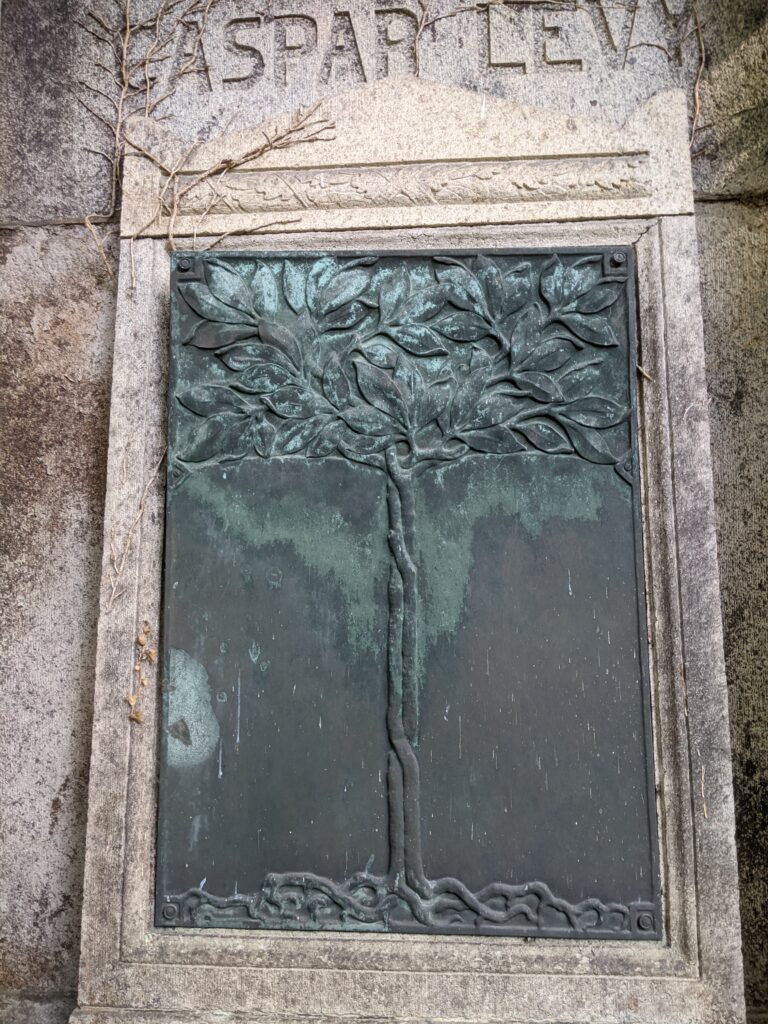As my train rolled west from Vienna the countryside became more hilly and alternated with deeply green grass and copses of trees and little villages clustering around a church with a tall, onion domed spire. And then the Alps…
What can you say about the Alps? What would Europe be without the Alps? As I approached a feeling of power and drama came to me. The power of the world seemed heightened as I saw the colossal rock faces and ridges of the mountains to my south, looming under cloud tossed skies. It was as though a part of me lit up again, a part of me became alive again. These mountains emanate a sense of undeniable wildness and sing a song of adventure to the world. They shrug off humans and our inventions and our cultural fabric, as if we are marginal and they central. They say nothing and yet I feel infused with a sense of spiritual grace approaching their slopes and peaks. I know others have felt this – Bruno Manser, Reinhold Messner, Herman Hesse, and of course the English pilgrims such as Wordsworth and Byron, have felt the spiritual power of the Alps. John Muir spoke about the sense of grace and uplift that mountains can bring into your life more memorably and clearly than anyone in English, even if those words were about a mountain range far away from here. Forget about the others, my own feelings this night as the train sped down into the valleys of the Alps, past church spires crowned by onion domes, rising up against the backdrop of steep stone and high places, were feelings of happiness. I felt like I was stepping back into adventure. The cities of Europe can have great beauty, but I was in need of the song of the earth in my ears. Now it is here.
The next day in Innsbruck I took two buses up to 800 metres, then walked for a few hours up to 1900 metres on Nordkette. It was a very steep incline full of loose stones in full sun much of the way. I drew fast paced gusts of breath and could only concentrate on putting one foot in front of the other and not falling off the slope for some of the ascent. My legs and my lungs took me to the top, whereas the tourists at the restaurant at the top had paid 70 dollars to get there in the metal cable car. Cresting a ledge of grass I looked across to a stone scree slope along the flanks of the mountain’s ridge. The Brenner Pass was to my south, over the other side of the Inn valley. Thousands of years ago Roman soldiers marched down the Brenner pass, in the middle ages horses and carts made the journey, and after 1945 some of the escaping Nazis fled that way. So much history below, but up in the sky you could just see distant peaks, covered in snow, and jutting stone ledges pushing into the blue above. The walk down was sometimes accompanied by wildflowers blooming in clearings that were made for ski slopes when the temperature is about thirty degrees below what it was today.
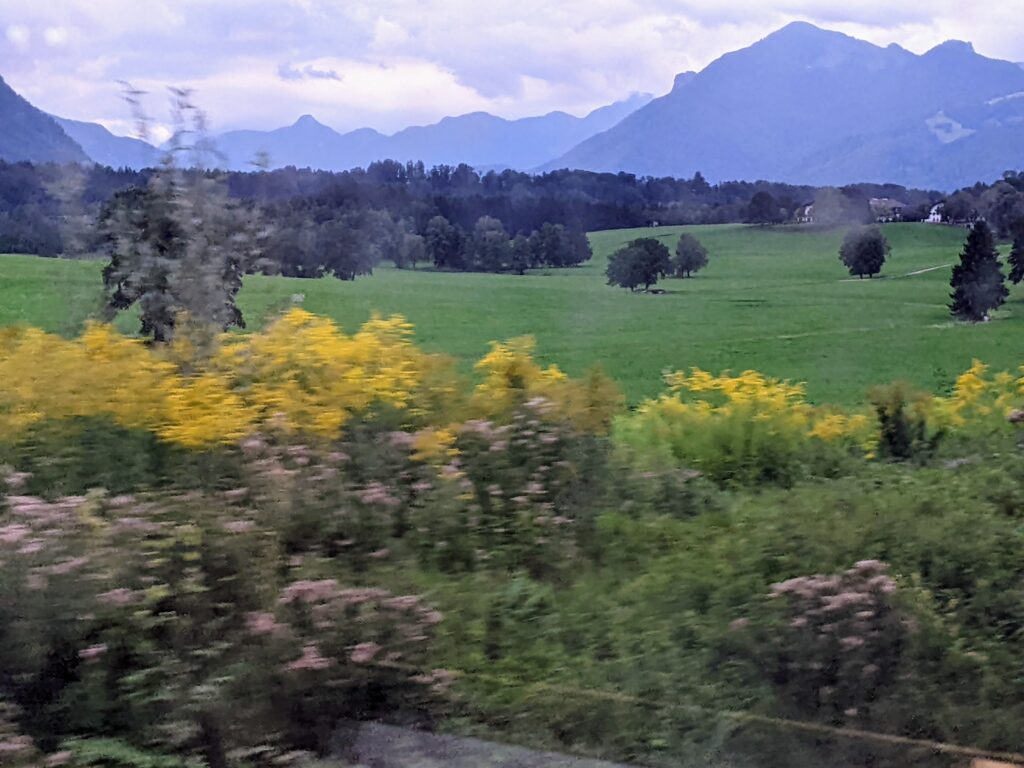
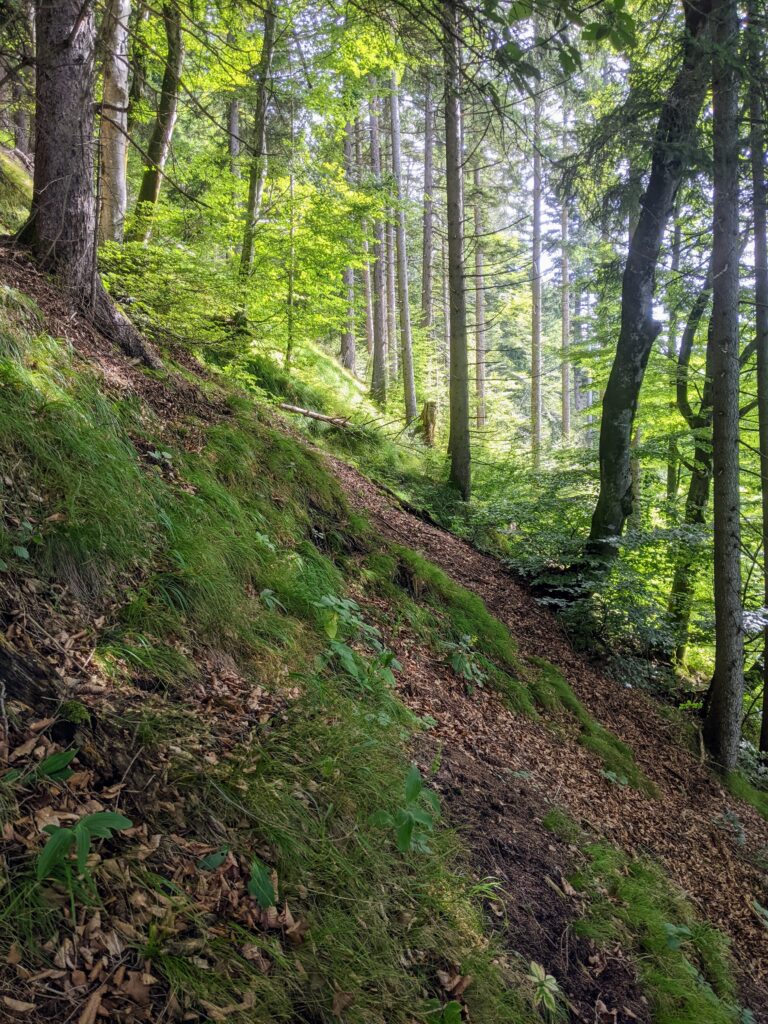
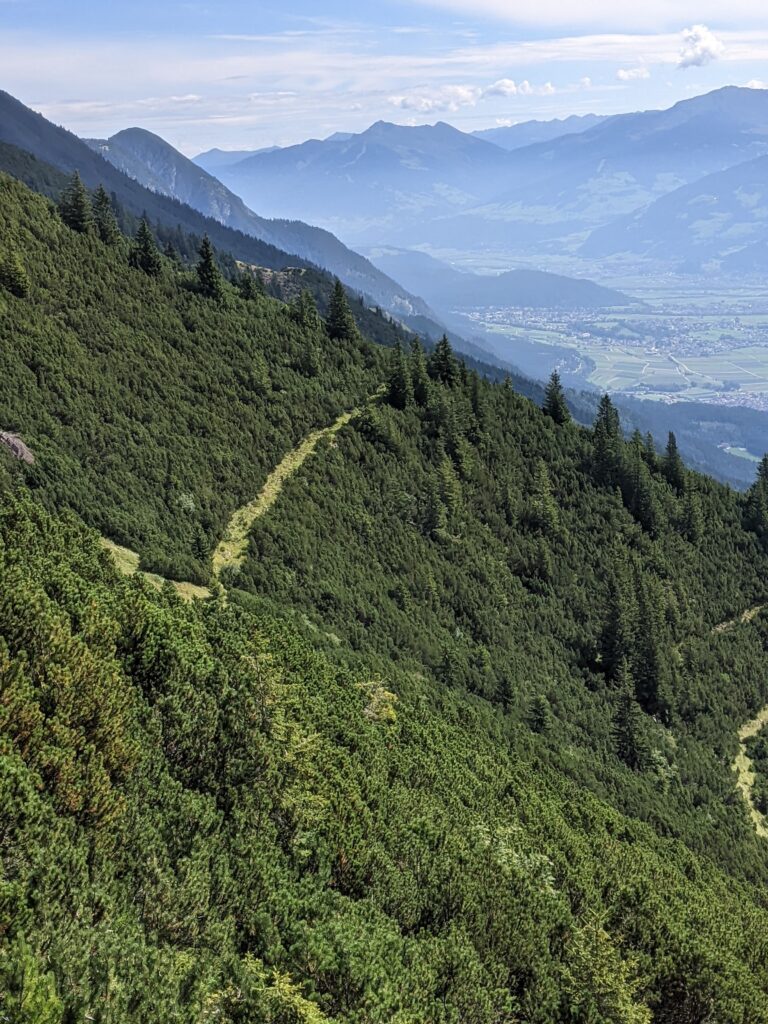
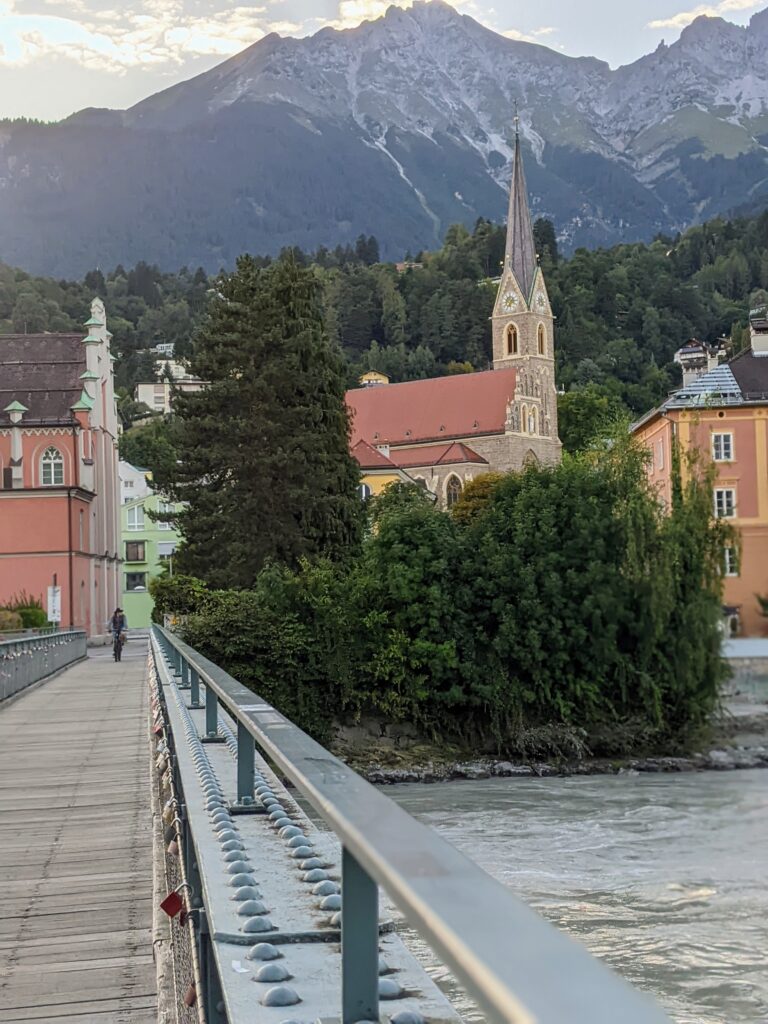
Today my friend who lives here and I took a bus about an hour west of Innsbruck to Kuhtai, a little ski resort. Kuhtai in the Tyrol is the highest alpine ski resort village in Austria, with a base elevation of around 2000m. We hiked up to three perched lakes, and took our clothes off and swam in the last one. The water was very cold, as you’d expect from snow melt. The second time I went in it was actually a bit painful – the kind of pain you feel if someone holds an ice cube against your skin for a bit too long – even in the seconds after I got out, this discomfort endured. But then the day’s warm sun defrosted me and the pleasure of being up at a high, wild alpine lake, sitting on a warm stone feeling clean and new came over me.
We walked on, and climbed a route up a 2641 metre peak. A bowl of water below us looked iridescently light blue, Speicher Finstertal, and above it towered jagged aretes atop another mountain ridge. A tiring steeple chase up and up and up began, pushing just slightly into one’s fear and against one’s hesitation. And then after an hour or two I am there, and straining quadriceps have elevated us into a realm of stone and ice and cloud. One’s motivation and muscle have done what almost doesn’t seem plausible when standing low in the valley below. I looked at the rocky high panorama around me, down into the bowl in the mountains filled with surreally blue water. At that moment I thought that this alpine climb and this moment high on the earth is one of the memorable moments that I will get in this life.
